In a recent Parenthood episode, Hank (Ray Romano) is caught by his employee Sarah (Lauren Graham) reading the YA novel The Hunger Games. He wants something to talk about with his eleven-year-old daughter who is coming to visit him for the weekend. He picked up the book because he heard it’s a series his daughter enjoys, but he is not really interested in the story. He begs Sarah to tell him the synopsis, defending his interest in connecting with his daughter. Later in the episode, he reveals in frustration that his daughter doesn’t think The Hunger Games is that cool anymore.
Ah, the challenge of raising teens. There is a real battle between connection and independence. How that plays out in books is fodder for interesting discussion.
So, we asked a few folks: Should parents read what their teens are reading?
Nearly 85% of parents polled said they think parents should talk with teens about what they’re reading, but don’t need to actually read the books themselves. The other 15% believe parents should read the books. No one answering the poll said teens are old enough to read completely unsupervised.
A few of the opinions shared:
Audra writes:
I don’t think we need to read everything, nor do we have the time, but I do try to read some of what they are reading. It is the only way our conversations about the book will have any substance or connection to their lives or the real-world issues related to the content/topic of the book.
Steve writes:
I have been giving books to my teens to read for some time now—all of my favorites that I know are age appropriate. I do not read some of the books my 13-year-old son reads, but I do get them from the juvenile section at the library and skim through them to make sure they are okay for him to read.
Tracy writes:
I think parents should monitor what their kids are reading, which doesn’t always mean reading the entire book, but looking into anything they aren’t familiar with. To say teens can read what they want is probably closer to the truth than we know with the Internet (50 Shades of Grey isn’t out of their reach just because I don’t let the actual book into their hands, unfortunately). But it’s still important for the kids to hear our views and guidance.
Laura writes:
I think it’s important to know what kinds of books your kids are reading, but I don’t necessarily think parents need to read the same books. I’m not sure if boys are different from girls regarding their choice of books, but I can imagine the horror on my 7th grade son’s face if he were to ever open a copy of 50 Shades of Grey! However, remembering how I was as a girl in 7th grade, I can see myself thinking I was old enough to read a book like that. I find it interesting to observe my own double-standard. Parents of girls: do you see your daughters wanting to read books that have more advanced themes in them, more so than the books your sons choose to read? Since I don’t have daughters, I can only use my own experience as a teenage girl and the types of books I read at that age. Either way, as with all aspects of parenting, it is good to be involved in our children’s choices and discuss those choices with them.
Elena writes:
I read everything my kids read. They are going to be shaped by the books they read, and as a parent, I feel I need to be a part of that process.
_____________________________________________________________________________
Have you ever asked your teens whether they want you to be reading their books with them? What have they said, and should it matter?
Some teens we asked were mixed in their opinions:
John writes:
Teens want to be independent and make our own choices about the books we read. Part of the fun of reading is choosing the books. I don’t want to feel like I have to ask permission from a parent to read a book. I want to be able to get recommendations from my friends and talk about books with friends.
Sara writes
Books that are written for teens have a certain mindset that’s not meant for adults. It’s meant for teens, the way we see the world, the way we think about things. I want to read a book and see it as a teen, not have to listen to what my mom says about it and try to see her point of view.
AJ writes:
I like books like The Hunger Games, The Maze Runner, Maximum Ride, and the Percy Jackson series. I know my mom isn’t into those. She sees the killing and fantasy worlds completely differently than I do. She should, she’s a mom. I don’t have to worry about or think about things she has to think about. She shouldn’t have to read stuff she doesn’t like just because I’m reading it.
Sydney writes:
What’s the point of reading a book no one likes just so you can say you’ve read it together? But I’ll read good books with my parents if they want to.
______________________________________________________________________________
What about you? Do you read what your teens are reading? Why or why not?
Join the conversation in the comments section below.
If you are interested in taking part in the Readers Write forum and sharing your opinion about book-related topics, be sure to subscribe to our monthly Readers Write email.

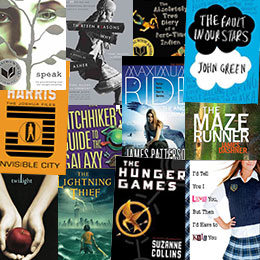

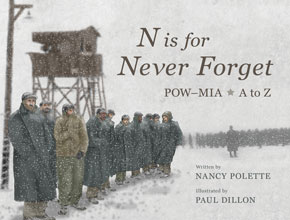
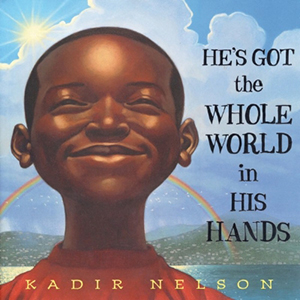

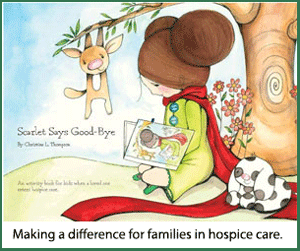




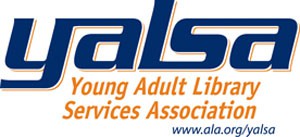
With now grown children, my experience was that keeping in touch with what they were reading permitted lots of interesting conversations AND it helped them develop their comprehension skills. They were the ones telling me about their book and then I could encourage the conversation around their synopsis. Certainly, there is overlap of our reading lists in the classics that they read for school which permitted other interesting conversations. And then there were the YA books that were so outstanding that an adult would be foolish not to read them.
I felt it was VERY important that there be some books that were their books alone. Our children need to learn that we WANT them to know more than we do! And that knowing more than someone else is NOT to be used as a weapon or means of control, rather as a contribution to the knowledge of the group. It helps to engender respect for each individual and allow them to contribute to the whole. We can teach them that their bit of knowledge could be the puzzle piece that helps to complete the puzzle!
There are so many ways in which creating that balance can support our children on their paths – self-esteem, curiosity, understanding of others and the world, imagination,… The list goes on. (sorry, I got carried away on a topic about which I am very passionate!)
I think part of growing up is learning to navigate what is good and bad, what you like and what you don’t. Therefore I think no, it’s okay to let your teen choose.
It’s such a fine line raising teenagers, and each child is different. Does your teen want you to be involved and share in his/her interests? I had one of each. One would’ve welcomed it; one thought everything of his/hers should be totally private and, frankly, none of my business! And sometimes you just get fooled – I told our kids that I really enjoyed Guns ‘n Roses back in the day when it was “their” music, and then I listened to the lyrics…. 😉 I’m not sure there’s a one-size-fits-all answer.
When I was going into freshman year honors English we were to read 3 summer books. My mother did read them and then banned me from Brave New World. That year she stuck me in regular English with a bunch of hooligans. I actually learned more that year from being around different minded people verses the same “smart” kids. I still will never read that book. Fahrenheit 451 is a book I would reject not because of the story but of the obscenities. My answer with no hesitation is yes, and that goes for rated r and pg13 movies too. Teens still have impressional minds. I also feel that Harry potter deals too much with evil and witchcraft and I cannot understand why a parent would want their child(under 13) involved with those sort of things.
As the parent of a tween, and an avid reader, I do take an active interest in what she reads not necessarily so I can monitor the content, but more so that I can actively participate in a conversation if she so chooses. It is a fine line to walk; we continue to teach our children to be independent young adults but we also must be aware of the world in which we live, meaning there is content out there that isn’t age appropriate. We need to provide guidance that allows them to make safe, independent choices in terms of what they read without them feeling as if they are being censored. So, to answer the question, do I read everything she reads? No. There isn’t enough time in the day to read her book of choice as well as my own! However, we do occasionally choose to read a book ‘together’ and I cherish the conversations about the book and am always intrigued at how differently books can be interpreted by individuals at different stages of their life.